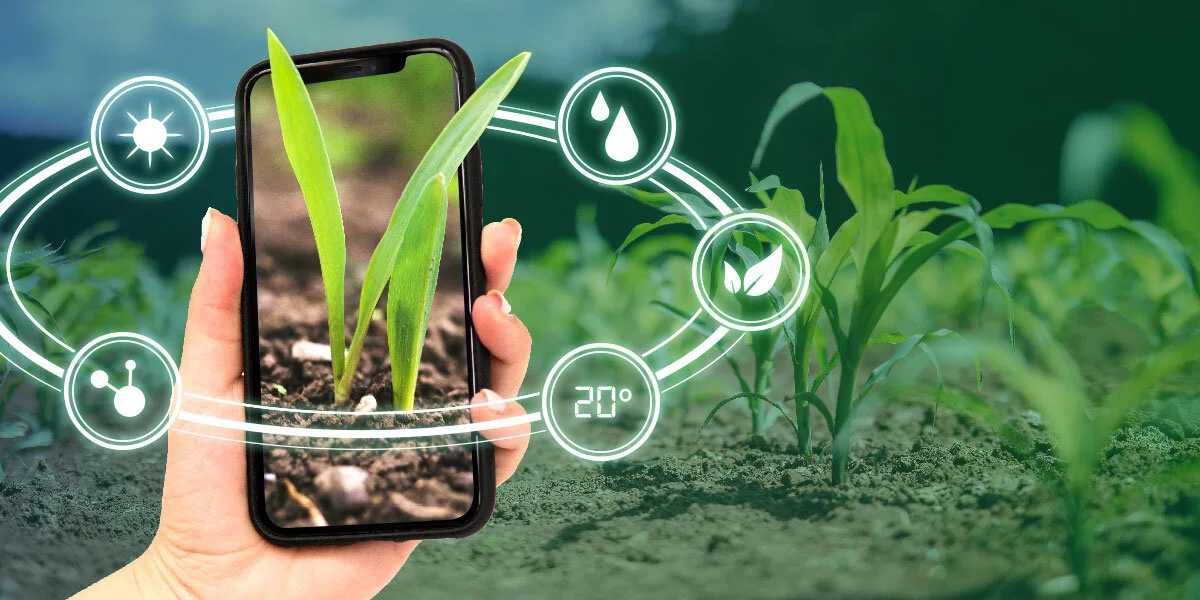
Agriculture Technology
Overview
This Agriculture Technology BSc (Hons) programme involves understanding the environmental and economic aspects of farming and sustainable agricultural practices with advanced technology. This course prepares students to become professionals, run a farm like a business, and meet the demands of a growing global population.
This course also prepares graduates to drive the future of agriculture through modern techniques and solutions, protecting the environment, and planning projects. And enable graduates to gain the knowledge to keep the food healthy and safe and the farming skills to protect the planet's environment now and in the future.
Objectives
- Cultivating agricultural technology expertise.
- Focusing on precision agriculture, robotics, and data management.
- Incorporating sustainability and eco-friendly practices.
- Enhancing problem-solving and critical thinking.
- Preparing graduates for leadership roles.
- Provide hands-on experience with modern farming techniques.
Prerequisites
- A-levels or equivalent with relevant subjects.
- Strong interest in agriculture and related fields.
- Solid interest in biology and chemistry.
- Strong communication and interpersonal skills.
- English language proficiency is required.
- Desire for positive impact.
Curriculum Outline
- Foundation in agriculture, biology, and environmental science
- Agricultural principles and practices
- Soil science and management
- Plant physiology and biochemistry
- Crop production and management
- Livestock production and management
- Agricultural economics and marketing
- Agricultural engineering and technology
- Research methodology and statistics
Teaching Method
- Lectures
- Tutorials
- Personal tutors
- Large group
- Practical sessions
- Laboratory work
- Field trips
- Guest speakers
- Collaborative with industry experts
Modules
- Applied Animal Science
- Mechanisation and Farm Buildings
- Applied Crop Science
- Introduction to Business and Research Methods
- Enterprise Technology
- Agri-food Business Marketing & Management
- Work Placement
- Livestock Production and Management
- Crop Production Systems
- Project Work
- Policies for Environmental Sustainability
- Business Innovation and Entrepreneurship
- Advances in Crop and Animal Science and Technology
- Farm Animal Health and Welfare
- Global Issues in Agriculture
- Precision Farming and Robotics
- Agricultural Data Management
- Crop and Soil Science
- Sustainable Agriculture
- Farm Business Management
Assessment Methods
- Coursework
- Examinations
- Assignments
- Project work
- Presentations
- Written assignments
- Practical assessments
Course Duration
This programme may vary depending on the institutions and countries, but the general standard options in the UK are:
- 03 years (full-time).
- 04 years with work placement (optional).
Facilities
- Advanced research laboratories.
- Conduct plant growth experiments.
- Implement sustainable farming practices.
- Utilise modern tools like drones, GPS systems, and automated machinery.
- Provide data analysis, farm management, and simulation tools.
- Offer practical training in farm machinery, robotics, and mechanical systems
Career Pathways
- Agricultural
- Agronomist
- Agricultural consultant
- Agricultural economist
- Agri-environmental
- Agri-food sectors
- Production and management
- Technical adviser
- Research and development
- Agricultural research scientist
- Agribusiness manager
- Agricultural extension officer
- Food safety inspector
Fees and Fundings
- Tuition fees are £25,300 per year and may vary depending on the institution.
- Scholarships, grants, and financial opportunities are available.
- Government loan aid is available.
Entry Requirements
- GCSE English Language grade C/4 or an equivalent qualification.
- A Level and Advanced VCE: BBB grades or equivalent.
- Minimum IELTS score of 6.5 or TOEFL 80.
- Strong communication and interpersonal skills.
Field Work and Internships
- Opportunities for fieldwork in modern farming environments.
- Industry placements and internships with leading agricultural companies.
Certifications
- Certified Crop Advisor (CCA)
- Certified Professional Agronomist (CPA)
- Certified Professional Soil Scientist (CPSS)
- Certified Professional Horticulturist (CPH)
- Certified Professional Animal Scientist (CPAS)
- Soil and Crop Science Certification (SCSC)
- Agricultural Data Management Certification (ADMC)
- Farm Business Management Certification (FBMC)
- Precision Farming Technology Certification (PFTC)
Intakes
Typically, it takes twice a year (fall and spring), but may vary like:
- Fall (September/October)
- Spring (January/February)
- Summer (May/June)
Student Testimony
"Agriculture is a passion of mine, and I felt that this degree offered excellent job prospects. I am really enjoying the course—it’s relevant and interests me, which is a help when it comes to learning. For my work placement, I hope to go into the genetics side of arming, as I have a keen interest in this from running a pedigree herd at home. For this, I hope to either go to America or New Zealand." Says - "Robert Patterson, BSc Agricultural Technology."
Frequently asked questions
The programme focuses on equipping students with advanced knowledge and skills in agricultural technologies, sustainable practices, and business management. It prepares graduates for leadership roles in the agricultural industry.